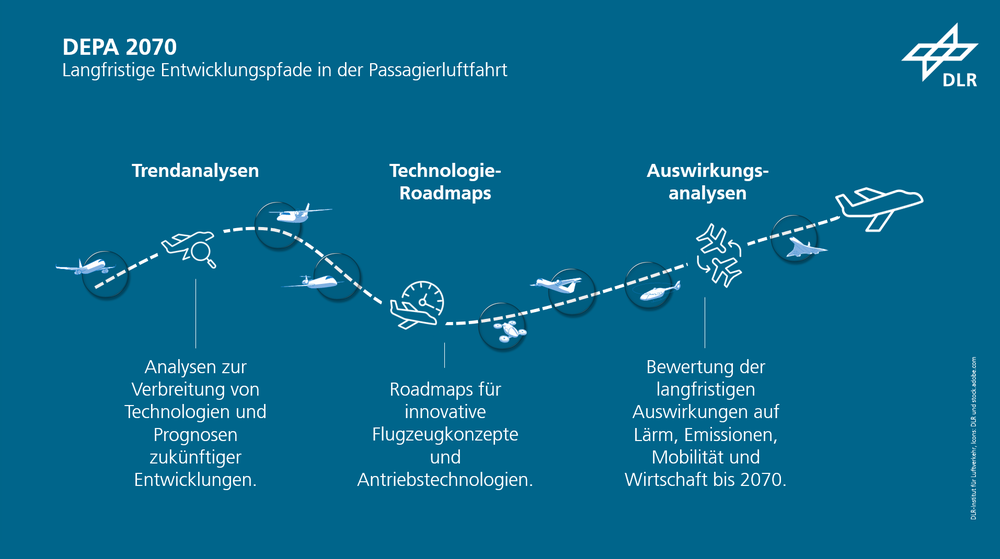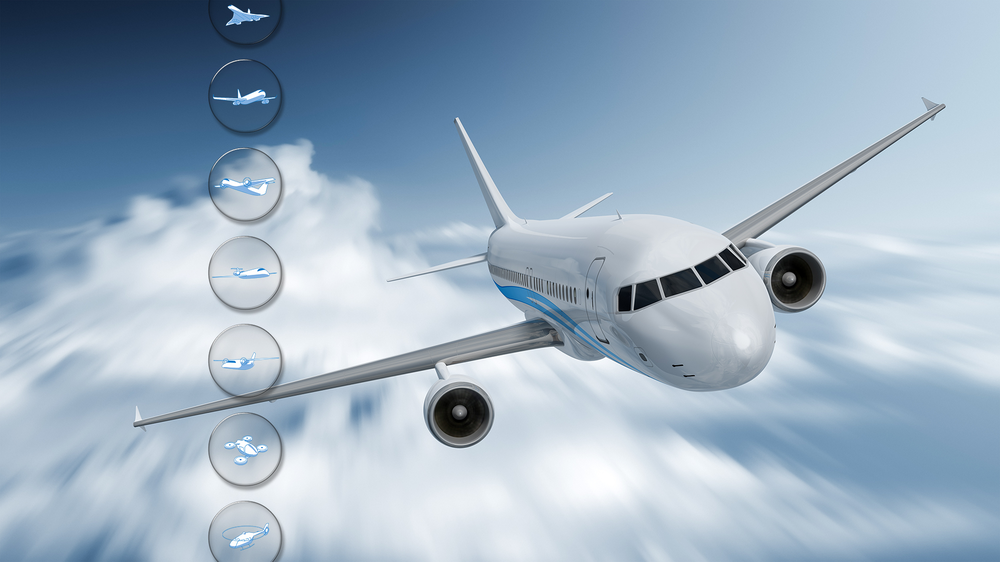DEPA 2070
Duration: 1. Januar 2022 bis 31. Dezember 2024
Solutions for the future of aviation
With DEPA 2070, the German Aerospace Centre (DLR) has developed comprehensive scenarios for the future of passenger aviation in order to identify new technological solutions that reconcile ecological and economic goals. The project analyses long-term trends in areas such as propulsion technology, alternative fuels and maintenance and thus supports the strategic orientation of aviation. External influencing factors such as population growth, energy prices and geopolitical developments are taken into account.
The project was led by the DLR Institute of Aeronautics, with the DLR Institute of Aerodynamics and Flow Technology, the DLR Institute of Electrified Aircraft Propulsion, the DLR Institute of Maintenance and Modification and the DLR Institute of System Architectures in Aeronautics also involved.
In the previous DEPA 2050 study the project team analysed two particularly likely scenarios. The conservative scenario assumes continued moderate technological development in aircraft and flight management. In this scenario, emissions continue to rise despite efficiency improvements due to projected growth. In the progressive scenario, several new technologies are combined and sustainable fuels are used on a large scale. The study shows that this scenario is the only way to reverse the trend in global aviation emissions.
For the current study, which extends the previous one to the year 2070, we worked with the German Aerospace Center (DLR) Institute of Air Transportation to analyse numerous studies on the market introduction of SAF in order to derive even more precise figures. Together with the project team, we determined the corresponding reduction in CO2 emissions from aviation.


